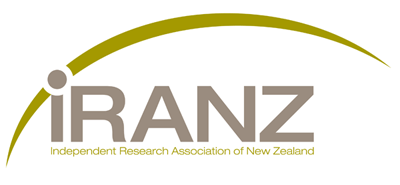IRANZ: Post-Budget statement
The Hon Dr Ayesha Verrall highlights the importance of investing in science to boost Aotearoa New Zealand’s economic advantage. IRANZ strongly endorses this. Budget 2023 positions the New Zealand economy for a low-emissions, high-wage future with a major investment into our science, digital, and horticultural technology sectors. It includes provision for:
Three new multi-institution hubs to increase collaboration in research and science;
Major investment in science and scientists; and
Fellowships and funding to develop more than 260 future science leaders.
IRANZ commends this investment in the Future Growth of Research Science and Innovation in the budget.
In particular, we support the new Science and Innovation hubs. When they are established, we expect them to include investment in Māori research infrastructure and support Mātauranga-led research.
The Wellington-based hub focused on health and pandemic readiness already involves IRANZ member the Malaghan Institute, in addition the Gillies McIndoe Research Institute and the Medical Research Institute of New Zealand are also centrally located in the Newtown - Te Aro - Kelburn Health Research Corridor.
Independent Research Organisations involved in Environmental and Infrastructure such as Cawthron, BRANZ, Te Tira Whakamātaki, WSP Research and Innovation, and Mackie Research look forward to participating in the Climate Change and Disaster Resilience Centre.
Aotearoa New Zealand needs to offer more secure job prospects for Early Career Researchers to allow them to develop the skills and knowledge needed to advance this country. Budget 2023 supports new talent through a $55.2 million investment in research fellowships and to train more PhD students. This is welcomed by IRANZ members, many of whom are currently supporting PhDs both in-house and in universities.
IROs have a number of initiatives to support Early Career Researchers, for example, the Cawthron Institute offers scholarships to tertiary students, providing them with an opportunity to contribute to an active scientific research project and be mentored by top Cawthron scientists. One of Motu Research’s founding motivations is building capacity in economic research in Aotearoa. Motu offers permanent Research Analyst positions to post graduate students. Motu also offer internships and scholarships for early career researchers, post graduate students, and students of Māori descent. BRANZ, WSP, and HERA have scholarships programmes for infrastructure research.
Mātai Research supports Post Doctoral Fellows, PhDs, Masters, Honours and Medical Students, they also offer undergrad and intern scholarships. They prioritise candidates from Tairāwhiti. Our other members in the health sector also support Post Doctoral FellowsPhDs and other students. Takarangi Research Group supports five current PhD students, all of whom are researching alongside mātauranga specialists (tōhunga) within marae communities across Aotearoa. Bragato Research Institute supports four PhD scholarships to build capability in the wine industry.
The Government aims for Research, Science, Innovation and Technology have already been set out in the White Paper Te Ara Paerangi (TAP). Te Ara Paerangi incorporates minimal explicit recognition of Independent Research Organisations (IROs) and the role they play in Aotearoa’s Research, Science, Technology, and Innovation (RST&I) ecosystem.
The IRO diversity of organisational structures, governance arrangements, research foci, and access to funding, e.g., philanthropy, community, and industry, enhances the current and future role of the RST&I system.
The current focus of the White Paper on Crown Owned Entities (CRIs and Callaghan Innovation) will constrain the contribution of IROs to the government’s vision of Te Ara Paerangi.
Aotearoa needs the Government to recognise that Te Ara Paerangi planning and thinking needs to be about the entire RSI system, including IROs. This should be clear in developing Phase 2 and 3 initiatives to enable ‘best-fit’ research organisations to assist the government to achieve its aims and objectives.
Contacts
IRANZ Chair Dr John McDermott john.mcdermott@motu.org.nz
IRANZ Exec Officer Dr Rob Whitney information@iranz.org.nz, Tel. 027 292 1050
Date posted: 22 May 2023

